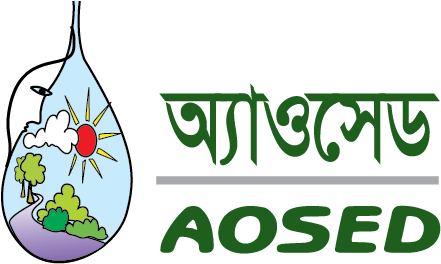Increasing diversified agro production through smart use of water and land in Saline affected climate vulnerable southwest Bangladesh
Southwest Bangladesh faced numerous challenges in agricultural productivity due to the adverse impacts of climate change, including increased salinity in soil and water, reduced freshwater flow, riverbank erosion, and silting up. This region, predominantly reliant on agriculture for livelihoods, suffered from a lack of crop diversification, with farmers cultivating only a single crop during the monsoon season. Additionally, there was limited knowledge among farmers regarding crop zoning, water management, and diversified agricultural practices. As a result, approximately 70% of the land remained uncultivated for a significant portion of the year, leading to food scarcity, malnutrition, and chronic poverty among the local population.
To address these challenges, a pilot project was implemented in Loudove Village, focusing on enhancing diversified agro-production through the smart use of water and land. The project aimed to increase access to secure food and nutrition for vulnerable communities while eradicating extreme poverty. Through activities such as farmers' group formation, educational campaigns, training sessions, and infrastructure development including canal excavation for freshwater reservoirs and embankment construction, the project sought to empower local farmers with knowledge and techniques for sustainable agriculture.
As a result of the project intervention, significant progress was achieved in enhancing the skills and capacities of farmers in freshwater preservation, optimum land utilization, crop zoning, and diversified cultivation. A 20-acre saline-affected single-crop land was successfully transformed into diversified cultivation throughout the year, yielding various types of rice, fruits, vegetables, and local fish species. Furthermore, the development of a freshwater reservoir of 4.8 acres led to the proliferation of aquatic life, including plankton and various local fish species, contributing to the sustainability of the ecosystem and improving the overall livelihoods of the community.




